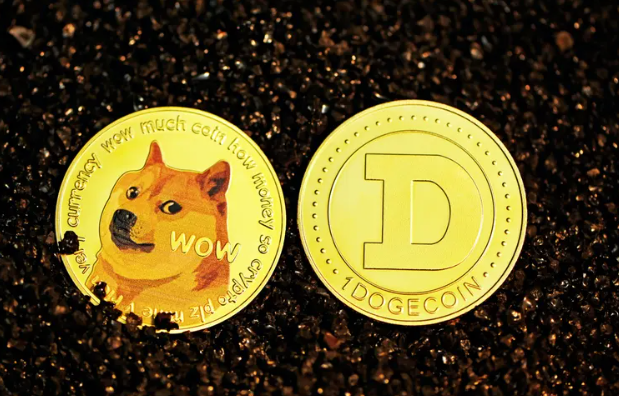The Evolution of Corporate Leadership
The 21st century has seen a significant change in corporate leadership. Leadership styles are changing. This mirrors other areas of knowledge, just like following the latest sports news from credible sources; Footbal Predictions at News 22Bet website are available for sports bettors.
In the past, leaders only handled operations and increased revenue. But those times have passed. A corporate leader’s responsibilities have expanded today. They have to control change and promote innovation. They also need to demonstrate emotional intelligence and give priority to sustainability. This modification represents the dynamic, complex world of international commerce. The new standards set by stakeholders, employees, and society are also reflected in it.
The New Profile of a Corporate Leader
The ideal corporate leader was once thought to be authoritative and decisive. Many believed they would bring financial prosperity to their organization. They excelled in basic business principles and strategy. These characteristics are still crucial, but they are now enhanced by a more complex set of abilities. Emotional intelligence is now necessary for effective corporate leadership. It also requires a dedication to corporate responsibility, flexibility, and inclusion.
In particular, emotional intelligence is vital. It entails having the capacity to recognize, manage, and communicate one’s feelings. This ability aids managers in fostering a happy workplace. They are also better able to handle stress and disagreement and promote teamwork. Companies deal with a diverse workforce and increasing complexity. Emotionally intelligent leaders are more likely to inspire and encourage their groups.
Adaptive Leadership in a Changing World
Technology is evolving quickly. The state of the world economy is changing. There are emerging new markets. Leaders that can quickly modify their tactics and operations are needed for all of this. A key component of adaptive leadership is comprehending change dynamics. It entails being flexible and receptive to new ideas. This needs to be done while keeping the organization’s long-term objectives in mind. In a market that is always changing, this adaptability enables businesses to remain relevant and competitive.
Additionally, adaptable leaders are adept at handling the organizational changes that come with living in the digital age. They support digital projects. These enhance consumer experiences and maximize business. They oversee the human aspect of transformation as well. They guarantee support and alignment at every level.
The Increasing Importance of Corporate Social Responsibility
Additionally, navigating the complexity of corporate social responsibility (CSR) is a need for today’s CEOs. More and more stakeholders, like consumers, workers, and investors, now demand that businesses act ethically and sustainably. CSR must be incorporated into executives’ main business plans. They have to weigh the social influence and profit in their decisions.
This change reflects a greater need from society for corporate ethics and openness. Leaders that embrace sustainability and corporate social responsibility improve the environment and society. They also enhance the long-term survival and repute of their business.
Leading with Inclusivity
Nowadays, being inclusive is essential for corporate leadership. Leaders are expected to foster an inclusive culture. It should welcome all forms of diversity, including gender, color, and thinking and experience. This strategy brings many viewpoints to the table. It fosters innovation and creativity. It also supports social justice.
Biases are eliminated by inclusive leaders. They uphold equity and make certain that each member of the team has the chances necessary to succeed. They are skilled at leading multicultural groups as well. The significance of this is growing in the context of multinational commerce.
The Role of Leaders in Talent Development
The emphasis on talent development is another important facet of modern leadership. Effective leaders see the value of making investments in their team members. Through career routes, mentoring, and training, they offer opportunities for personal and professional development. This not only aids in luring and retaining elite talent. It also develops a workforce with greater skill.
In addition to being managers, today’s leaders are also expected to be coaches and mentors. They form the next generation of leaders. They ensure their companies have the leadership depth needed for long-term growth and success.
Leadership and Technology: Embracing Innovation
The relationship between technology and leadership is more crucial in the digital age. Today’s executives must support innovation. They also must be consumers of technology. It entails keeping up with technological advances. The Internet of Things (IoT), blockchain technology, and artificial intelligence are a few examples. By doing this, you’ll increase productivity and add value. These are tools that leaders can employ effectively. They can get an advantage by changing their business models.
The trick is to integrate these technologies with the company’s strategy goals in mind without interfering with its day-to-day operations. Fostering a culture of continuous learning and resilience is how effective leaders do this. They foster an atmosphere of safety where creative ideas can be tried out and expanded by encouraging experimentation and measured risks.
Emotional Intelligence and Leadership Success
More and more businesses are realizing how employee happiness and productivity are impacted by mental wellness. Emotional intelligence (EQ) has so assumed a central role. High EQ leaders are able to identify both their own and other people’s emotions. They control these feelings. This inspires their colleagues and fosters good relationships. They excel at resolving disputes and emergencies. They are therefore priceless in high-pressure situations.
Caring about others and understanding them can lead to better outcomes. This is true for negotiating and client interactions. This is another area where this skill set is useful. Emotionally intelligent leaders are more likely to foster trust. Additionally, they have a higher chance of fostering stakeholder loyalty. Achieving long-term business success requires doing this.
In short, the 21st century corporate leader has a complex and tough job. A careful mix of traditional management techniques is needed. Additionally, new qualities have emerged. These include emotional intelligence, flexibility, inclusion, and a strong moral sense. We’re still navigating a world that is changing. It presents both opportunities and challenges. Effective leaders are able to exhibit these traits. They’ll be in the best position to lead their companies to prosperity.





